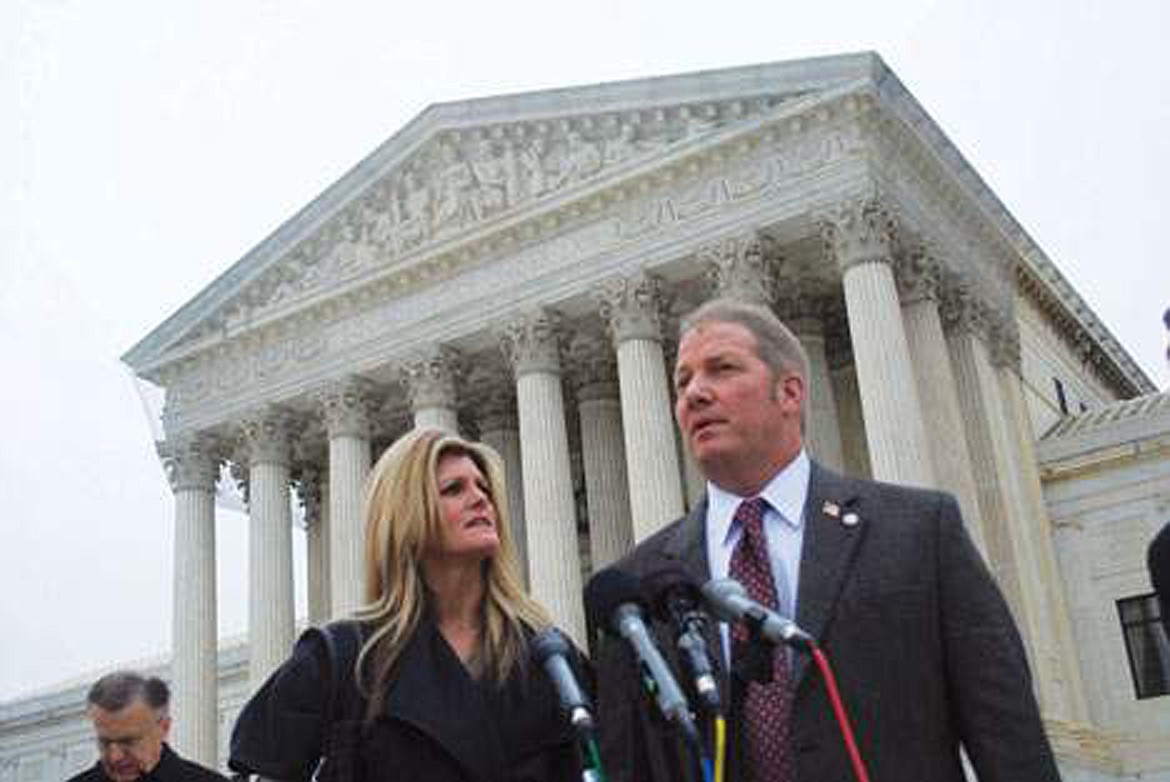Judge pauses new Biden WOTUS rule
A federal judge in North Dakota on Wednesday blocked in 24 states the Biden administration’s newly effective definition of waters that can be regulated under the Clean Water Act.
U.S. District Judge Daniel Hovland, a George W. Bush appointee on retired status in the North Dakota District, issued a preliminary injunction in a case two dozen Republican state attorneys general brought against the U.S. Environmental Protection Agency and the Army Corps of Engineers.
The ruling for now blocks enforcement of a rule to expand what the EPA could consider “waters of the United States,” or WOTUS, under the Clean Water Act in Alabama, Alaska, Arkansas, Florida, Georgia, Indiana, Iowa, Kansas, Louisiana, Missouri, Montana, Nebraska, New Hampshire, North Dakota, Ohio, South Dakota, Tennessee, Virginia, Mississippi, Oklahoma, South Carolina, Utah, West Virginia, and Wyoming.
The rule took effect March 20, despite bipartisan objections from Congress.
The Clean Water Act was meant to apply to “navigable waters,” Hovland said.
But the Biden administration definition ignored that standard, removing any limit on federal regulation of any waterway that crosses a state boundary. That went beyond the statutory meaning of the Clean Water Act and raised “serious federalism questions and concerns,” Hovland said.
“The exercise of jurisdiction over all rivers, lakes, and other waters that flow across state boundaries, no matter how small or isolated and regardless of navigability is constitutionally troublesome,” he wrote. “There is nothing in the text of the Clean Water Act that supports making every wetland, stream, or other water crossing a border subject to federal jurisdiction.”
As the EPA and Army Corps review their options, they are enforcing the pre-2015 definition of waters of the United States in the 24 states, an EPA spokesperson said in a written statement Wednesday.
“The agencies continue to believe the rule, which is informed by the text of the relevant provisions of the Clean Water Act and the statute as a whole, as well as the scientific record, relevant Supreme Court case law, input from public comment, and the agencies’ experience and technical expertise after more than 45 years of implementing the longstanding pre-2015 regulations defining waters of the United States, is the best interpretation of the Clean Water Act,” the spokesperson wrote.
“The agencies remain committed to establishing and implementing a durable definition of ‘waters of the United States’ informed by diverse perspectives,” the spokesperson added. “Our goal is to protect public health, the environment, and downstream communities while supporting economic opportunity, agriculture, and industries that depend on clean water.”
Legal definition of waters of the U.S. has been subject of debate for years
The legal definition of waters of the United States has been the subject of fierce debate for years.
Describing the long procedural and legal history of the rule, Hovland said the shifting definitions of the rule “have created nothing but confusion, uncertainty, unpredictability, and endless litigation throughout this country.”
After years of litigation and a 2006 U.S. Supreme Court case that defined waters subject to federal enforcement as having “a significant nexus” to navigable waters, the EPA under President Barack Obama in 2015 issued a rule seeking to clarify what that meant. Many in agricultural and construction industries that rely on federal permitting said that definition expanded what the federal government could regulate.
Under President Donald Trump, the EPA narrowed the definition to “traditional navigable waters.”
President Joe Biden’s rule once again widened the definition to be closer to the Obama administration’s version.
Congress sought to overturn enforcement of the rule, with majorities in both chambers voting in March to adopt a resolution blocking the rule.
Biden vetoed that resolution on April 6.
U.S. Supreme Court case brought by Idaho couple is pending
The Biden rule has been deeply unpopular with farmers and ranchers, many of whom view it as federal overreach onto private lands.
In statements praising the decision, some of the attorneys general in the case echoed that sentiment.
“This is a huge win for Iowan farmers, builders, and landowners,” Iowa Attorney General Brenna Bird said in a statement. “And we’re not going to stop here. We’re continuing to fight back against the Biden Administration’s aggressive federal overreach and will turn this into a permanent win.”
The U.S. Supreme Court is expected to rule this term on another WOTUS case. That challenge to the rule was brought by an Idaho couple, Michael and Chantell Sackett, who said wetlands on their property should not be considered “water of the United States.”
U.S. Rep. Mike Simpson, an Idaho Republican who chairs the U.S. House Appropriations subcommittee that oversees EPA funding, said the agency should not have issued the rule while a Supreme Court decision was pending.
“The Biden Administration should not have issued their expansive and overreaching rule on WOTUS while a case is currently before the Supreme Court,” Simpson tweeted. “I’m glad to see the rule blocked.”
Hovland said the pending ruling in that case was one reason to block the Biden rule from taking effect.
Because the Supreme Court ruling will likely have a major impact on the central issues of the case, the status quo should remain in place until the Supreme Court rules, he said.
“Hopefully, the Supreme Court decision in Sackett will provide some clarity,” Hovland wrote. “The outcome of the Sackett case may have significant implications for the EPA’s authority to determine jurisdictional waters under the Clean Water Act. It may also determine the EPA’s ability to enforce the 2023 WOTUS Rule. Until then, every state will continue to swim in waters of uncertainty, ambiguity, and chaos.”

